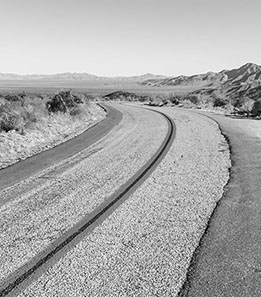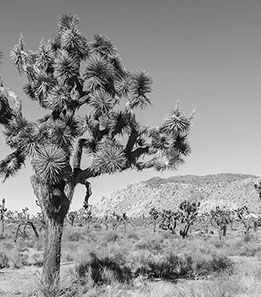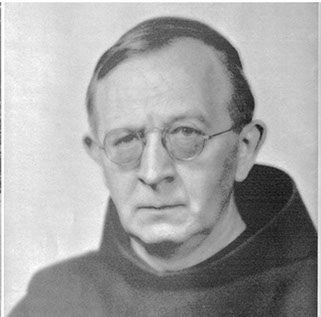Fr. Thomas Plassmann
Thomas Merton's Important People
Click here for PDF of this page
(Includes time-line of Plassmann's life and references for futher reading)
"Plassmann" from "A Biographical Register of the Franciscan Institute" in Franciscan Studies 51 (1991) p.155-156 (used by permission of Franciscan Studies) Fr. Thomas Plassmann, O.F.M., 1879-1959 (b. March 19, d. February 13):
Professed 1899; ordained 1906. Educated at Quincy College, Quincy, IL (BA, MA, 1898), Collegio Apollinaris, Rome (STD, 1909) and the Catholic University of America (PhD, 1913), with a thesis entitled: The Signification of Beraka. He did further studies in the Holy Land, at Louvain, and at the University of Bonn. He received three honorary degrees (LLD): St. Francis College, Brooklyn, NY, June 3, 1939; Canisius College, Buffalo, NY, May 12, 1940; and Niagara University, Niagara Falls, NY, June 3, 1945. The Franciscan Order conferred the title Lector Generalis of Sacred Scripture, November 8, 1931, and Lector Jubilatus in 1953. In 1919 Plassmann founded the Franciscan Educational Conference and served as its president until 1947. He was a member of the St. Bonaventure College faculty for 45 years. From 1920 to 1949 he served as its president, and from 1952 to 1959 as rector of Christ the King Seminary.
As professor he taught the following subjects at the college: oriental languages, hermeneutics, exegesis, Sacred Scripture, dogmatic theology and petrology. From 1949 to 1952 he was minister provincial of Holy Name Province. He published many books, and articles for journals and encyclopedias. Some of the spiritual books he authored were: The Priest's Way to God, The Seven Words of Mary, From Sunday to Sunday, The Upper Room, and The Radiant Crown of Glory. He also published in The Cord and served on its editorial board, and was acting editor of Franciscan Studies from 1945 to 1956. He was fluent in Hebrew, Syriac, Latin, Greek, Ethiopic, German, Italian and Spanish. Also, as an authority on ecclesiastical art and symbolism, he was frequently consulted by architects and ecclesiastical designers. A man of vision for the future of St. Bonaventure College (as well as for the intellectual contribution of Franciscans to American life), Plassmann promoted graduate studies in Franciscan philosophy and theology, invited Boehner to Allegany, encouraged him to continue his research and teaching, promoted his reorganization of studies, and as president of the college, supported, endorsed, and approved the Franciscan Institute. Plassmann rightly considered himself the founder of the Franciscan Institute. "To the Very Reverend Thomas Plassmann, O.F.M." in Franciscan Studies 14 (1954) p.1-2 (used by permission of Franciscan Studies)
The work of the scholar-priest is always dual: he teaches and he writes. It is perhaps regrettable that outside the sphere of personal contact his fame as a rule must depend largely upon his published works. The arduous and time-consuming duties of his priesthood very often restrict the quantity of his scholarly output, whereas the influence of his personality and erudition in the classroom and elsewhere may have a greater and more lasting effect than any of his most learned writings.
Since 1910 Father Thomas Plassmann has been a brilliant expounder of Sacred Scripture, dogmatic theology, and other sacred sciences to endless hundreds of young men at Christ the King Seminary. For over forty years (double the time usually allotted to any professor) he has poured out for them the treasures of his vast and profound learning - the fruit of his own years of study at the Catholic University of America, the Apollinaris, Sapienza (Rome), Louvain, and the Holy Land itself and he has always done so with a casual charm and simplicity that bears lightly the ponderous weight of his many academic degrees.
Besides the burden of teaching throughout these forty-odd years, Father Thomas has also been laden with heavy administrative responsibilities. He was president of Saint Bonaventure University (then College) from 1920 to 1949; and during that period healso served as guardian, definitor, and provincial secretary, and was appointed visitator general to Canada, Saxonia, and Ireland. From 1949 to 1952 he filled the office of minister provincial for Holy Name Province, and since 1952 he has been rector of the new Christ the King Seminary, which he himself built as provincial.
Because Father Thomas has always been the priest's priest rather than the scholar's priest, the list of his learned writings is all too brief: The Signification of "Beraka", The Study of the Root d-b-r, Baronius, Bartholomaeus Anglicus, besides contributions to the various learned journals in Biblical studies, history, theology, and related fields. But if his actual scholarly production has been relatively small, his influence on Franciscan scholarship in America has been very great. He founded The Franciscan Educational Conference in 1910, serving as president until 1946, and Franciscan Studies, of which he is currently the editor; the existence of The Franciscan Institute is due largely to his efforts and farsighted cooperation; and as president or officer of such learned societies as The National Catholic Education Association, The Catholic Biblical Association, The Catholic Historical Association and The Association of Colleges and Universities of New York State, he has made his influence felt over a wide and important area of American culture.
In these latter years of his full and fruitful life, Father Thomas has directed his energies more and more toward the education of priests. His more recent publications bear such titles as: The Book Called Holy, The Priest's Way to God, From Sunday to Sunday; and his latest work (now in press) is entitled The Upper Room - a collection of retreat conferences for priests based on the lives of the Apostles.
On March 19, 1954, seventy-five years will have passed since Thomas Bernard Plassmann was born in the little Westphalian town of Avenwedde, and more than fifty years since he cast his lot, as a boy of nineteen, with the Franciscan Fathers of Holy Name (New York) Province. It has therefore seemed most fitting that the editorial staff dedicate this number of Franciscan Studies to our beloved founder and editor. The dedication is made in a spirit of sincere respect for Father Thomas as a most worthy son of Our Seraphic Father Francis and as a scholar whose personal influence has been wide and varied, whose knowledge has always been dedicated to the promotion of true Franciscan piety and learning. From: "The Very Rev. Thomas Plassmann" in The Provincial Annals (Holy Name Province) 16 (1959) p.98-101 (used by permission of the Province)
Long Term at Bona's
"Father Tom," as he was known to thousands of alumni, had been on the faculty of St. Bonaventure University for over 45 years: first as a professor, then 29 years as its president; and more recently, since 1952 as Rector of Christ the King Seminary, the seminary he had dreamed of building from that day in 1930 when its predecessor burned to the ground.
Fr. Thomas' achievements as an administrator were outstanding. He came to a small college, of 300 students, in 1910, and saw it raised to university status in 1950 with a top enrollment of 2,200 students after World War II. Following the disastrous fire in 1930, Fr. Thomas collected the funds and supervised construction of new dormitories, chapel, classrooms and laboratories, dining hall, gymnasium, stadium, library, and a parish church for the community of Allegany, New York.
Offices in Order
Meanwhile, he held many responsible posts in the Order of Friars Minor, as Supervisor of the Franciscans on the University faculty; as Visitor General to Canada, Mexico and post-war Germany; as Prefect of Studies of Holy Name Province, responsible for the founding of Siena College, Albany, N.Y., and the affiliation to the University of St. Joseph's Seminary, Callicoon, N.Y. He served two terms as Definitor, and three years (1949-1952) as Provincial, of Holy Name Province.
The Educator
Among educators, Fr. Thomas was widely known. He was a founder of, and for 38 years, president of, the Franciscan Educational Conference; president of the Seminary Department, National Catholic Education Association; ex-president of the Association of Colleges and Universities, New York State; a member of the Regents College Council, New York State, and of the Catholic Historical Association.
All this time Fr. Thomas kept close contact with the classroom as a teacher. It was through his priestly word and example, and vast erudition, that he left his imprint on all who had the good fortune to have been his students. Among the subjects he taught at St. Bonaventure were: Oriental Languages, Hermeneutics, Exegesis, Sacred Scripture, Dogmatic Theology and Patrology. In addition at various times he directed the choir, the band and the orchestra, moderated various scholastic societies as the James Dolan Literary and Debating Society, the Duns Scotus Theological Society, as well as the Third Order.
The Writer
With all these activities Fr. Plassmann, a poet at heart, also made a name for himself as author of spiritual books such as The Priest's Way to God, The Seven Words of Mary, From Sunday to Sunday, The Upper Room, The Radiant Crown of Glory, as well as of almost countless articles in periodicals. He wrote fifteen contributions on medieval personalities for the Catholic Encyclopedia with extensive bibliographies. He read and spoke Hebrew, Syriac, Latin, Greek, Ethiopic, German, Spanish and Italian, in addition to being well versed in a number of Biblical and oriental languages and their dialects.
The Speaker
As a speaker Fr. Thomas was in constant demand. He preached many annual Retreats and Days of Recollection for the clergy as well as the laity; an untold number of special sermons before high-ranking dignitaries of the Church, the Franciscan Order and the State; and innumerable lectures on radio networks and the platform. As a Master of Ceremonies for various banquets and civic gatherings he was without peer. It is not so widely known that, as an authority on ecclesiastical art and symbolism, he was frequently consulted by architects and ecclesiastical designers.
Fr. Thomas was ex--president of, and consultor to, the Catholic Biblical Association, and on the editorial board for the Confraternity edition of the New Testament. With Fr. Mathias Faust, then Delegate General to the U.S.A., he instigated the foundation of the Franciscan Institute, situated at St. Bonaventure University, for scholarly studies in Franciscan philosophy, theology, history and spirituality. This institute is a distinct unit of the Graduate School and has already published some 60 critical works acclaimed by scholars the world over.
Life
Born Bernard Plassmann, March 19, 1879, at Avenwedde bei Gueterlch, Westphalia, Germany, he came to America at the age of fifteen and took his A.B. and M.A. degrees at Quincy College, Illinois, entering the Franciscan Order in September, 1898, in the future Holy Name Province at Paterson, N.J. His theological studies were made in Washington, D.C. At the time of his ordination he had already gained his Ph.D. from Catholic University; his thesis was on The Signification of Beraka (The Jewish Benediction). The priesthood was conferred on him in Washington by Archbishop Diomede Falconio, O.F.M. (later Cardinal), who had been the second president of St. Bonaventure University. Fr. Thomas became its eleventh president in 1920.
Degrees, Honors
His studies in oriental languages and the Bible were continued by graduate work in Rome, at Bonn, Louvain, and in Palestine. Academic honors included the degrees of Litt.D. received from St. Bonaventure University; LL.D. from St. Francis College, Canisius and Niagara and the high Franciscan titles of Lector Generalis and Lector Jubilatus, conferred from Rome. He was a member of the Gallery Living Catholic Authors.
In 1949 he celebrated his Golden Jubilee of religious profession. In April, 1956, at his Golden Sacerdotal Jubilee he was honored by the award of the Pro Ecclesia et Pontifice Medal by the late Pope Pius XII, and the presence of many high Catholic prelates. In June 1958, he was publicly honored at a civic celebration, by being made the first Honorary Citizen of Avenwedde, the place of his birth.
Fr. Thomas originated the annual award at St. Bonaventure of the Catholic Action Medal to an outstanding layman. First recipient was Alfred E. Smith; others have been John S. Burke of New York City; and Dr. Carlton J. H. Hayes, historian and ex-Ambassador to Spain.
In accordance with the exhortation of St. Francis, Father Thomas relied on the beneficence of others. In a reverend sense, he became known as "God's Pickpocket," because he begged from alumni, friends, strangers and all denominations, to achieve the goal he had visualized for St. Bonaventure University.
A Memorial
On October 7, 1958, as a "Living Memorial" to Fr. Thomas, St. Bonaventure University marked the beginning of its second centenary of Franciscan service to education by naming its new million-dollar arts building for the Friar who had guided the institution through its most ambitious construction program during his 29 years as president. In the presence of the Apostolic Delegate to the United States, as well as of other high clerical and civic dignitaries, the 40 room classroom building was named "Father Thomas Plassmann Hall" in honor of the legendary friar who, "revered and beloved by all, spent 40 years making people feel at home at St. Bonaventure."


